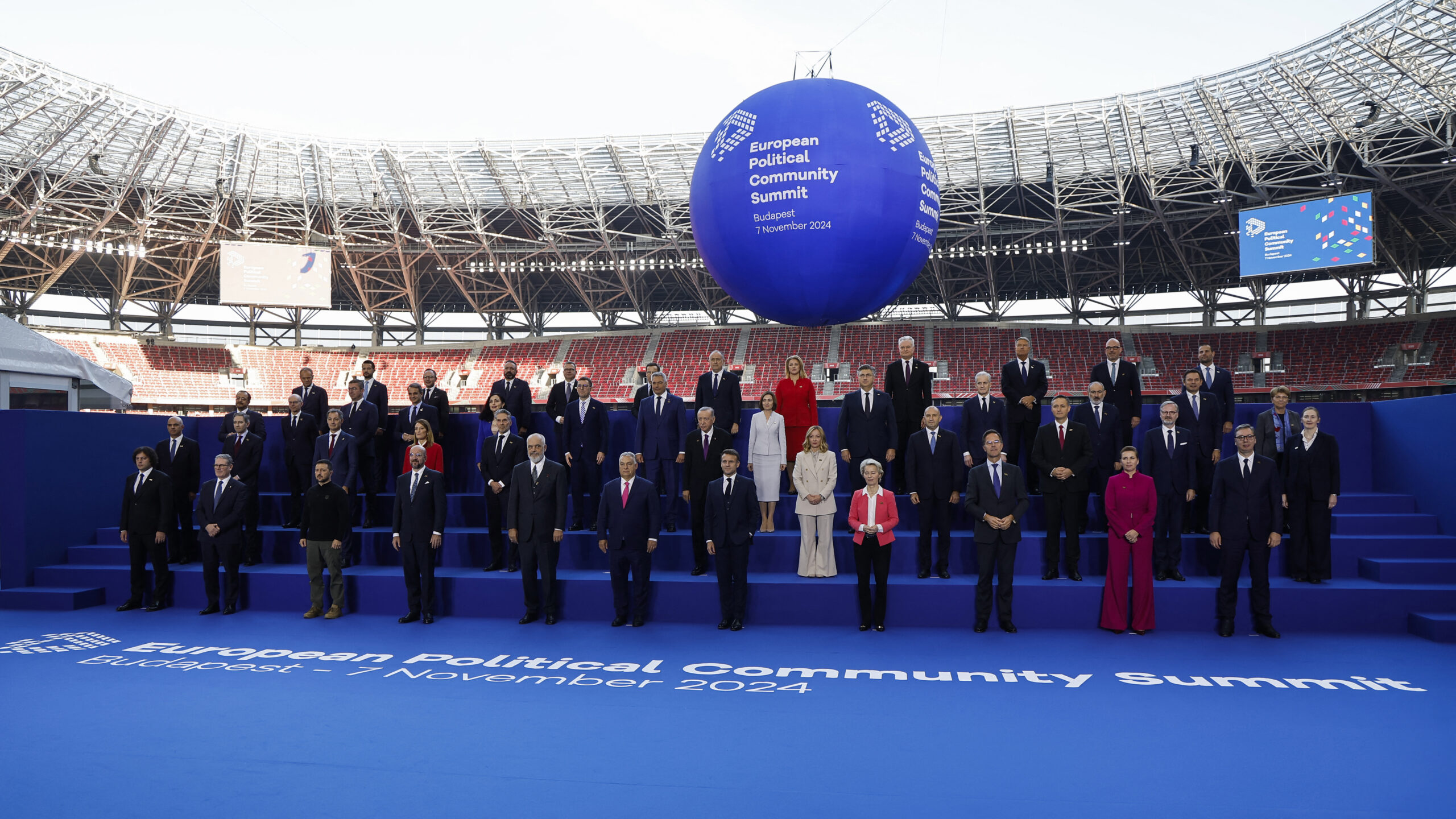Transformations in the world order inevitably entail the dismantling, restructuring, and reforming of existing international frameworks. This was evident after the Second World War, when the current—though increasingly fragile—US-led neoliberal world order emerged, accompanied by the establishment of the architectures that shape global dynamics today: NATO, the European Union, the United Nations, and numerous other international organizations and initiatives, predominantly initiated by the West.
However, much like the world order that created them, these systems have weakened, strayed from their original purposes, or have become ineffective in fulfilling the objectives they were designed to achieve. NATO, for instance, is increasingly drifting from its role as a defensive alliance, as the Biden administration and its Western European allies take progressively escalatory actions in the Ukraine war—actions that no longer align with the defence interests of transatlantic integration. Meanwhile, leading states of the global South have been advocating for reform of the UN Security Council for years, while the current geopolitical confrontations have further underscored the dysfunctionality of the organization’s governing body in its present form.
Europe Lost in the Transformation
Perhaps even more prominently, the European Union, under a progressive leadership has plunged into a level of crisis in recent years that has not been witnessed for decades. Comprised of 27 member states—following the departure of the UK, one of its largest contributors—, the bloc finds itself increasingly out of place in a shifting world order. It appears indecisive, often misguided, and overly bureaucratic, steadily losing what remains of its influence on the international stage.
The EU’s competitiveness and economic performance are at an all-time low, with the continent lagging behind Asia and the United States in innovation, among other areas. Despite these challenges, the Brussels leadership remains blind to the failure of its flawed strategies and appears incapable of renewal. This inertia persists even in the face of clear signals from the European electorate, as evidenced by recent European Parliament election results and national election outcomes over the past six months.
‘The EU appears indecisive, often misguided, and overly bureaucratic, steadily losing what remains of its influence on the international stage’
Meanwhile, countries in Asia—particularly China, India, and the ASEAN nations—have developed efficient and effective systems over recent decades, focusing on innovation, competitiveness, and economic growth. Central Asian states have also enjoyed steady economic progress lately, while the Gulf states have positioned themselves at the forefront of green technology innovation as they prepare for the post-oil era.
In short, while the influence and economic power of the West have been steadily declining—largely due to the misguided decisions of progressive elites to prioritize various moral and social considerations—the East is growing stronger. This is a pivotal moment in which Europe must act decisively and without delay to secure its position within the emerging multipolar world order.
Hungary had recognized the need for swift action and understood that it could not rely on its European counterparts, particularly Brussels, long before the current geopolitical situation unfolded. Following his landslide election victory in 2010, Hungarian Prime Minister Viktor Orbán took decisive steps by announcing, among other novel initiatives, the ‘Eastern Opening’ policy, aimed at revitalizing Hungary’s historic ties with Asia.
In his speech at this year’s Eurasia Forum, Orbán identified the 2008 financial crisis as the starting point of the breakdown of the Western-led world order. This transformation, he explained, is fundamentally reshaping established geopolitical relationships and elevating new centres of power, particularly in Asia. As a result, a new paradigm is emerging in which modernity is no longer an exclusively Western concept.
As Balázs Orbán, the political director of the Hungarian Prime Minister, detailed in his book published last year, Hungary applied a ‘hussar cut’ strategy to outpace other EU member states in strengthening its extensive relations with Eastern nations. This bold manoeuvre now appears to be a viable and effective approach.
Thanks to years of consistent effort and favourable international political developments—such as the re-election of Donald Trump—Hungary is now well-positioned to play a pivotal role within the European Union and contribute significantly to shaping a new Europe.
Building a New Europe
‘In the 2030s, a new Europe could emerge, with a redefined relationship among Member States, based on a new treaty...Hungary could take a leading role, becoming the founder of a more flexible European organization. Here, a harmonious fusion of East and West could be achieved, offering a chance to create a new European Common Market,’ stated György Matolcsy, Governor of the Hungarian National Bank (MNB), during his speech at the Eurasia Forum.
While these remarks might initially appear overly ambitious or detached from reality for a country of Hungary’s size, they are, in fact, grounded in a perfectly logical vision.
‘The Hungarian EU Presidency, ending this month, has demonstrated that Hungary is ready to assume a decisive and leading role in the European Union’
One need only consider Hungary’s unique policies that have faced significant criticism in recent years but have since been vindicated in many cases and adopted by several EU Member States. The most notable example is Hungary’s approach to migration, which prioritizes strict and effective border protection. While this policy initially drew heavy criticism in the EU, it has now proven to be the only effective means of curbing illegal immigration. Consequently, several Member States have decided to implement similar measures.
The Hungarian EU Presidency, ending this month, has demonstrated that Hungary is ready to assume a decisive and leading role in the European Union. The presidency’s achievements are undeniable and speak for themselves: Romania and Bulgaria will join the Schengen Area in 2025, with the agreement signed in Budapest, resolving Austria’s long-standing veto; Albania’s EU accession negotiations were launched under the aegis of the Hungarian Presidency; and the Budapest Summits were commended for their excellent organization and significant outcomes.
The latter is worth examining in greater detail, as it could play a significant role in shaping a new European system. Firstly, the European Political Community (EPC) summit marked a turning point, by assigning the EPC a more decisive role: the leaders agreed to provide the initiative with a formal organizational framework. Hungarian EU Affairs Minister János Bóka has stated in an interview that the EPC could serve as a platform for European security—an architecture complementing NATO that prioritizes European security interests, which often diverge from those of the United States.
In addition, following the EPC summit, the leaders of the EU Member States adopted the Budapest Declaration—initiated by Hungary—during an informal European Council meeting. The document is notable in several respects, addressing the core issues that hinder the European Union’s ability to act effectively. Key measures include a drive to reduce administrative burdens and curtail the power of bureaucracy—steps that are essential for building a new Europe.
A Trustworthy Partner
Hungary’s aspiration to assume a potential leadership role is far from unrealistic, particularly as the Central European state’s diplomatic influence could increase significantly following the election of Donald Trump. Furthermore, Eastern countries—including China, the Central Asian states, and the Gulf states—view Hungary as a reliable negotiating partner. This role is indispensable in shaping a Europe that adopts a more pragmatic approach toward both Asia and the United States while prioritizing the sovereignty of nation-states.
‘Eastern countries view Hungary as a reliable negotiating partner. This role is indispensable in shaping a new Europe’
Additionally, non-EU European countries, such as the Balkan states, have more confidence in Hungary than in Western European nations, which have been ‘arm-twisting’ them over EU membership for decades.
It remains evident that the main actors of the architectures, systems, and organizations of the old world order are stubbornly clinging to their positions, unwilling to acknowledge the need for change. This is exemplified by the campaigns launched by the European Commission and European courts against Member States seeking to adapt to new realities and prioritize their national interests.
Nevertheless, change is inevitable, and the longer it is delayed, the further Europe will fall in the global hierarchy of great powers. One thing is certain: Hungary stands ready to take the lead in building a new Europe that prioritizes a more decentralized cooperation among nation-states.
Related articles:








